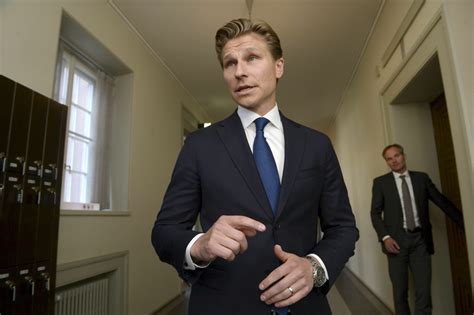European NATO allies are facing a pivotal moment as they seek clarity on the potential withdrawal of U.S. troops from the continent. Finnish Defense Minister Antti Häkkänen emphasized the crucial need for a “clear roadmap” outlining how such a shift would unfold to prevent any vulnerabilities that could be exploited by Russia.
In a recent phone interview following an informal meeting of EU defense ministers in Warsaw, Häkkänen stressed the importance of coordination between European nations and the United States in crafting a strategic plan. He highlighted the necessity for transparency and seamless collaboration to ensure continuity in defense capabilities across Europe.
Collaborative Efforts for Strategic Planning
Häkkänen’s call for a comprehensive roadmap mirrors similar sentiments expressed by other European leaders, including German Defense Minister Boris Pistorius. The urgency to develop a structured approach stems from concerns about potential gaps in defense capabilities and the equitable distribution of responsibilities among NATO members.
As geopolitical dynamics evolve, with shifts in U.S. focus towards the Indo-Pacific region, European countries find themselves at a critical juncture where recalibrating defense strategies is imperative. The rising uncertainties surrounding America’s commitments to its NATO allies have prompted calls for proactive measures to safeguard European security interests.
Challenges and Opportunities Amidst Transition
The prospect of reduced U.S. military presence in Europe presents both challenges and opportunities for the continent. While acknowledging Washington’s strategic imperatives regarding China’s military activities in the Indo-Pacific, Häkkänen underscored the risks associated with any diminished American engagement, particularly for nations situated near Russia.
With Finland sharing a substantial border with Russia, concerns about maintaining robust defense mechanisms loom large. Häkkänen emphasized that Europe must not solely rely on U.S. capabilities but should bolster its own defenses through enhanced European initiatives—a sentiment echoed by many within the EU seeking greater self-reliance in security matters.
The Role of EU in Strengthening Defense Capabilities
Against this backdrop, there has been a growing emphasis on empowering the European Union to play a more significant role in fortifying defenses against potential threats from Russia. Efforts to enhance military spending within the EU through proposed Commission plans signify a collective push towards bolstering Europe’s overall defense posture by 2030.
The alignment of national fiscal rules and substantial defense loans offered by the Commission could pave the way for substantial investments aimed at enhancing security resilience across member states. Häkkänen expressed optimism about these initiatives paving the way for increased strategic autonomy within Europe while addressing American expectations for clearer commitments from their transatlantic partners.
In conclusion, as Europe navigates complex geopolitical realities and charts its course amidst evolving global dynamics, cohesive planning, mutual cooperation, and concerted efforts will be essential to safeguarding continental security interests amid shifting alliances and emerging threats.

